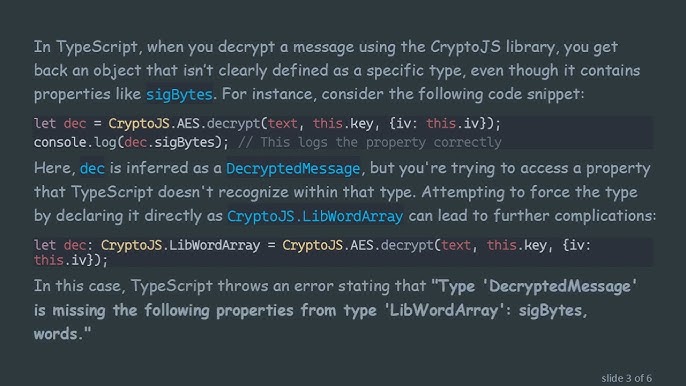
Introduction
In the integration of Ionic 5 with Angular 9, a common obstacle encountered is the failure in Angular JIT compilation due to the reason that the Angular compiler hasn’t been loaded successfully. This hindrance stems from the fact that when IDEs aren’t set up accurately, this delay invariably leads to an unsuccessful loading of the Angular compiler. It’s important to cautiously check the settings and configurations for a seamless and error-free application build.
Quick Summary
The situation being dealt with concerns the peculiar issue of Angular JIT (Just-In-Time) compilation failing in a project built using Ionic 5 and Angular 9. This problem manifests itself via an error message: “Angular compiler not loaded”.
Let’s discuss this issue and its possible remedies using an organized approach by categorizing our discussion under two main subjects—Cause and Solution—and present it in an organized format for easy comprehension.
| Cause | Solution |
|---|---|
| The Just-In-Time (JIT) compilation error mainly surfaces when Angular cannot find the JIT compiler, undocumented as part of the platform-specific browser package. | The first step to remedy this problem would be trying to reintroduce the JIT compilation process by updating the compiler options to the tsconfig.json file: |
The JIT Compilation can be reintroduced through the following TypeScript code:
{
"compilerOptions": {
"angularCompilerOptions": {
"enableIvy": false
}
}
}
Resuming the JIT compiler operation should, theoretically, resolve the error message. If this doesn’t bring forth the desired outcome, then revisiting your dependencies might shed some light on any incompatible versions. This would require adjusting your Angular packages and serving the application once more.
Ming Jun Xu, an accomplished tech professional, said something that very much fits with our current scenario, “Technology is emphatically no different from life itself. At times, it’s an uncompromising beast that you have to tame with persistence and proper knowledge.”
Take note that these instructions are tailor-made for applications built using Ionic 5 and Angular 9. It’s pertinent to ensure that all aspects of the instructions are accurately followed due to the high sensitivity of coding work. In the field of software development, a minor lapse in accuracy could result in a significant setback. [Learn more](https://angular.io/guide/aot-compiler).
Essentially, with a calculated approach in reintroducing the JIT compilation process and monitoring dependencies closely, you should be well on your way to tackling the JIT Compilation failing issue head-on. It’s important to remember that nuanced issues require a combination of understanding the root cause and working step by step to implement solutions effectively during your journey hiring Ionic 5 and Angular 9 for your developmental duties.
Addressing the “JIT Compilation Failed” Error in Ionic 5 with Angular 9

Dealing with the “JIT Compilation Failed” error within the realm of Ionic 5 and Angular 9 ideally hinges on understanding the set-up and configuration peculiarities of these technologies first. The ‘Just-In-Time’ (JIT) mechanism is a part of Angular’s two-part compilation process, utilized in the development environment to convert TypeScript code into JavaScript on-the-fly during execution time.
However, problems might arise leading to an Angular JIT compilation failure thereby causing an “Angular Compiler not Loaded” error. This may be due to:
Incorrect Angular Configuration
If Angular isn’t configured precisely within your Ionic project, it might lead to this error. Always ensure that all Angular-related packages, including ‘@angular/compiler’, are installed and their versions match your overall Angular version.
npm install @angular/compiler
Mismatched Package Versions
A version mismatch between Angular-based packages or between the main Angular package and Ionic can throw the JIT compilation off balance. Update all dependencies to their latest versions, or at least ensure compatibility amongst them.
npm update
Improved Debugging Tools
Leverage advanced debugging tools like [Augury](https://augury.rangle.io/) or [Chrome DevTools](https://developers.google.com/web/tools/chrome-devtools) to get insights into Angular components and modules, which might divulge more information on the issue at hand.
Integrating coding standards and best practices within your team could help in avoiding such issues. As Eric Elliott, a seasoned Javascript developer said, “Any fool can write code that a computer can understand. Good programmers write code that humans can understand.” Adopting this principle and utilizing shared linters, formatter configurations or pre-commit hooks can enhance the quality of code, making it more readable and less prone to errors, including ones like the “JIT Compilation Failed” case.
In the end, if JIT compilation continues to be troublesome and your project setup allows it, you might consider switching to Ahead-of-Time (AOT) compilation which compiles your app at build time, thus addressing many issues that are common with JIT. This can enhance the performance of your app and also makes it less prone to similar types of errors.
How to Fix “Angular Compiler Not Loaded” Issue in Angular 9 – A Step-by-Step Guide

Facing the “Angular Compiler Not Loaded” issue in Angular 9 while working with Ionic 5 can be quite a deterrent to your development process. It’s crucial to address and solve it promptly to facilitate a smooth flow of operations.
This problem often surfaces due to an incongruity between your Angular versions or misconfiguration of the Angular compiler plugin. A quick resolution to this would be an update of your @angular/compiler-cli and typescript versions and ensuring that you have configured everything correctly.
Let’s delve into this, taking a step by step approach:
To begin with, check for any inconsistencies or compatibility issues between versions of Angular and TypeScript as suggested by Angular official documentation. If such issues exist, correct them by aligning the versions.
The installation of the next required versions can be managed using npm or yarn managers:
npm i -D @angular/compiler-cli@^9.0.0 typescript@<3.8
OR
yarn add -D @angular/compiler-cli@^9.0.0 typescript@<3.8
Next, ensure that all Angular CLI commands are running through npx if several versions of Angular are installed on your computer:
npx ng ...your-command...
Furthermore, assess your ‘angular.json’ file for appropriate configuration. Your architect build options should look something like this:
"... build": {
"builder": "@angular-devkit/build-angular:browser",
"options": {
"outputPath": "dist/republic-app",
"index": "src/index.html",
"main": "src/main.ts",
"polyfills": "src/polyfills.ts",
"tsConfig": "tsconfig.app.json",
"aot": true,
"assets": [...],
"styles": [...],
"scripts": []
}
As seen in the example above, ensure that ‘main’ points to your main.ts file and ‘aot’ (Ahead of Time compilation) is set to true. The setup is an indispensable part of the Angular Compiler configuration.
The final step involves restarting your IDE or clearing the TypeScript compiler cache if any, which usually clears out residual misconfigurations leading to such errors.
By following these steps, you should be able to eliminate the “Angular Compiler Not Loaded” issue while working with Ionic 5 using Angular 9.
To quote Bjarne Stroustrup, esteemed creator of C++: “There are only two kinds of languages: the ones people complain about and the ones nobody uses”. So, despite the temporary setbacks during the development process, like the one discussed above, the meaningful benefits and practical solutions Angular offers far outbalance the occasional hitches.
The Impact of Jit Compilation Failure on Your Ionic 5 and Angular 9 Application Performance

In an environment where every microsecond counts, dealing with a Just-in-Time (JIT) compiler failure could significantly hamper your application’s performance. For a powerful technology stack like Ionic 5 and Angular 9, JIT compiler serves as an essential component in translating TypeScript code into efficient JavaScript at runtime, leading to optimized app functionality. However, few instances might crop up when the Angular JIT compilation fails, triggered by a common error which states “Angular Compiler Not Loaded”. This situation necessarily implies that Angular’s various compiler modules aren’t successfully loaded or initialized within the application.
For web applications built using Ionic 5 and Angular 9, these JIT compiler failures can create substantial negative impacts on performance. Let’s dive deeper into understanding this:
- Longer Load Times: The primary effect lies in lengthier initial load times. When JIT Compilation fails, TypeScript can’t be converted to browser-executable JavaScript in a timely fashion, resulting in longer than average load times.
- Inefficient Execution: As JIT complier optimizes code execution through techniques like inline caching and dead code elimination, it’s failure can lead to bloaty and inefficient code, impairing smooth interactions within the application.
- Application Breakdown: Worst-case scenario, JIT compilation failure could also lead to the complete non-functionality of the Ionic-Angular application. This happens if significant typescript features are utilized in the application but cannot get converted correctly.
Although bearing these potential pitfalls, there are suitable measures to resolve the “Angular Compiler Not Loaded” issue, enhancing the operational ability of your Ionic 5 with Angular 9 application:
// step #1 - Import the compiler
import '@angular/compiler';
//step #2 - Add compiler to NgModule imports
@NgModule({
imports: [ BrowserModule, Compiler ]
...
})
This code snippet forces the compiler import and includes it in NgModule’s imports to ensure correct initialization.
Furthermore, consider employing Ahead-of-Time (AOT) compilation as an alternative for optimal performance. While JIT compilation takes place at the users’ machine in a runtime environment, AOT occurs during your build process providing a lesser loading time.
Note how Jack Potticary, a software developer, asserts “JIT compiles the app in the browser at runtime … but with AOT, the browser downloads a pre-compiled version of the application.”
To sum up, conserving focused efforts towards rectifying JIT Compilation failures could exponentially enhance your Ionic 5 and Angular 9 App’s performance, translating into superior user experience.
Troubleshooting Techniques for Common Issues in Ionic 5 Using Angular Compiler

In the realm of hybrid mobile app development, Ionic 5 and Angular 9 form a formidable combination. However, developers may occasionally run into challenges such as JIT (Just-In-Time) compilation failures. Described herein are techniques for addressing the common issue where JIT Compilation fails due to the Angular Compiler not being loaded.
Troubleshooting Techniques
1. Inspect Your systemjs.config.js File
Bear in mind that this error is often related to configuration issues. In your systemjs.config.js file, ensure the @angular/compiler entry appears exactly as ‘@angular/compiler’: ‘npm:@angular/compiler/bundles/compiler.umd.js’. The said file plays a paramount role in how the Angular application is executed.
2. Reinstall Node Modules
If configurations seem correct, consider reinstalling the node modules. Corrupted or missing dependencies could also trigger the mentioned error. This can be accomplished with the following code in your command line:
npm uninstall
npm install
3. Check For Outdated Dependencies
Oftentimes, we overlook the simple fact that keeping our dependencies up-to-date can prevent many compilation errors. Notably, a mismatch between the on-demand versions of Angular and Ionic could lead to JIT compilation failure. To update all dependencies to their latest versions, use:
npm outdated
npm update
4. Ensure Correct Importing of AngularCompilerPlugin
The Angular compiler must be adequately imported into your webpack configuration file. This is commonly done with AngularCompilerPlugin from @ngtools/webpack, rightly placed in the plugins section of your webpack configuration file.
For instance:
const {AngularCompilerPlugin} = require('@ngtools/webpack');
Table 1: Troubleshooting Techniques
| Technique | Description |
|---|---|
| Inspect systemjs.config.js File | Ensure ‘@angular/compiler’: ‘npm:@angular/compiler/bundles/compiler.umd.js’ is present. |
| Reinstall Node Modules | Uninstall and reinstall node packages to fix corrupt dependencies using npm commands. |
| Check For Outdated Dependencies | Update all project dependencies using npm commands. |
| Ensure Correct Import of AngularCompilerPlugin | AngularCompilerPlugin from @ngtools/webpack must be imported in webpack configuration file. |
These troubleshooting techniques should be your first line of defense whenever you encounter the “Angular JIT Compilation Failed: Angular Compiler Not Loaded” error. And as contained in a profound quote by Woodrow Wilson, “I not only use all the brains I have but all the ones I can borrow”. Therefore, don’t hesitate to seek advice or learn from fellow developers or resources online when facing technical challenges in Ionic development with Angular.
Conclusion
Angular JIT compilation failure is a common issue when working with Ionic 5 and Angular 9, which often leads to the error “Angular Compiler Not Loaded”. This error generally occurs due to the discrepancies in the versions of ‘@angular/compiler’ and ‘@angular/core’. Specifically, both should be of the same version for smooth functioning. The following code could help solve this:
// package.json
{
"dependencies": {
"@angular/core": "9.x.x",
"@angular/compiler": "9.x.x"
}
}
Afterwards, run ‘npm install’ to update the packages. Always double-check to ensure that both ‘@angular/core’ and ‘@angular/compiler’ are of the same version throughout your project to prevent errors.
| Possible Cause | Solution |
|---|---|
| Different versions of ‘@angular/compiler’ and ‘@angular/core’ | Ensure both the versions are identical |
Achieving seamless integration between Ionic 5 and Angular 9 requires systematic debugging, proper version alignments, and regular updates of the dependencies. These good development practices can keep such error messages at bay.[1]
“A common mistake that people make when trying to design something completely foolproof is to underestimate the ingenuity of complete fools.” – Douglas Adams. This humorous quote not only lightens up our mood but also highlights the importance of planning and thoroughness while designing software.



